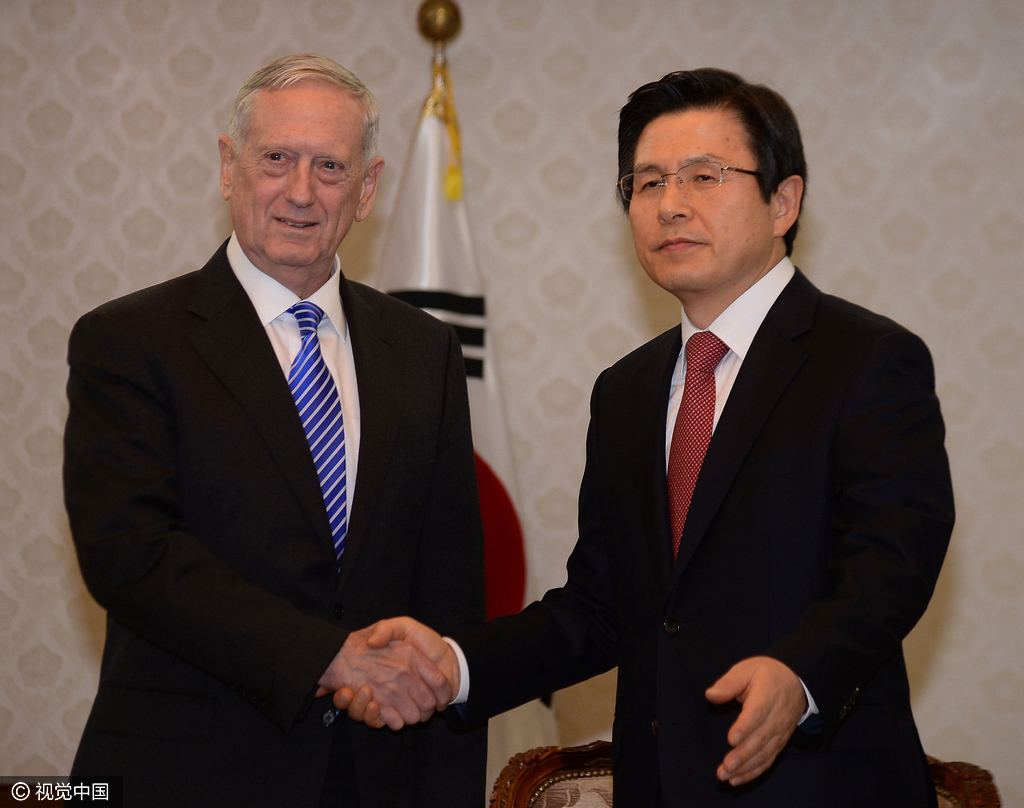
South Korea Truly Values the US; Is This Good?
South Koreans seemed excited that their country was the first to be visited by Mattis. Previously, Trump had stated that he wanted South Korea and Japan to contribute more to the cost of U.S. troops stationed in their countries, and that he did not attach too much importance to relations with allied nations, causing great concern to Seoul and Tokyo.
It seems as if Mattis has come to calm South Korea and Japan; perhaps he will mention in passing the cost of the stationed troops. In general, South Koreans are a little confused, they not only attach importance to Trump’s government reaffirming its promise of security for South Korea, but they also care about where on the list of America’s priorities their country stands. After visiting Seoul, Mattis visited Tokyo. The order of his visits pleased South Koreans because during previous visits to East Asia, U.S. secretaries of defense visited Tokyo before they visited Seoul.
South Korea apparently sees the U.S. as its savior; North Korea’s nuclear activities really seem to be scaring them. Seoul has already turned toward the U.S. and has let itself be controlled by the United States.
Seoul’s independent diplomacy is almost dead, even its ability to independently think politically is seriously withering. Because South Korea has turned toward the U.S., it will never be able to settle its security concerns. South Korea originally played an independent role in the issues of the peninsula, but it has actively renounced this role. Washington’s interest in peace for the peninsula is certainly lower than that of Seoul. South Korea’s last bargaining chip is to urge the U.S. to consider the benefits to South Korea when drawing up its policy in the peninsula.
The issues between North and South Korea, the nuclear issues of recent years, and Washington’s policy of controlling China are problems in the peninsula. It is hard for Seoul to grasp that it will soon be reduced to a chess piece for Washington.
This is the sorrow of South Koreans, and the sorrow of all of Northeast Asia. Not long ago, South Korea was full of mettle and proud of its achievements. Now, however, in a flash it has changed and now looks quivering toward the United States. Regrettably, China is unable to assuage South Korea’s fears. Seoul wants Beijing to act as if THAAD is only to be used to handle the North Korean nuclear threat; but because this is not the case, the Chinese cannot join the South Koreans in projecting their confused role.
The THAAD issue involves the quality of China’s strategy of nuclear deterrence. China is determined to ensure that its own continually increasing nuclear deterrent power is strong; maybe these games have already just begun. South Korea has half-knowingly, half-unknowingly, been drawn into a power game. This will be a long-term burden, one that South Korea will slowly have to bear.
Mattis said that THAAD will not target any country other than North Korea; China does not take this statement seriously. If Washington changes its tough tone, China will not care. China has already adapted to the fact that the U.S. is strengthening its alliances with South Korea and Japan. If everybody really wants to play “big game” in Northeast Asia, China will be obliged to join them. But please take note: China will not procrastinate like other countries do.
